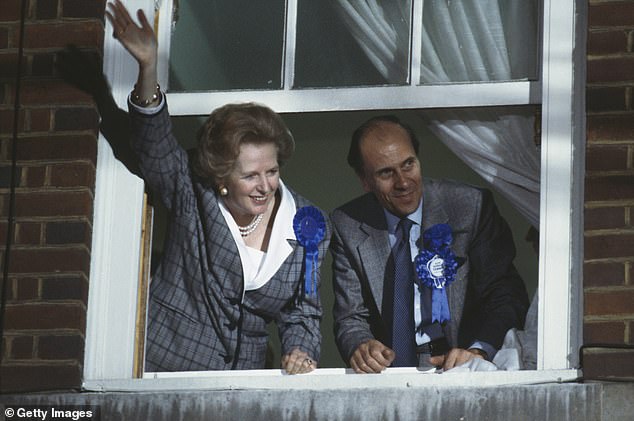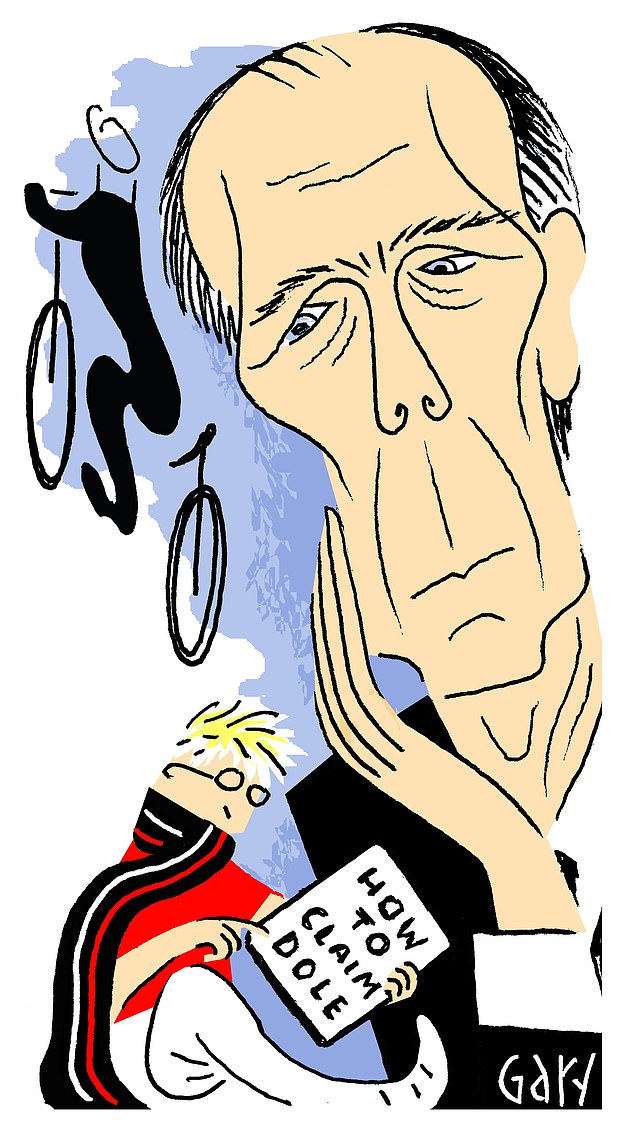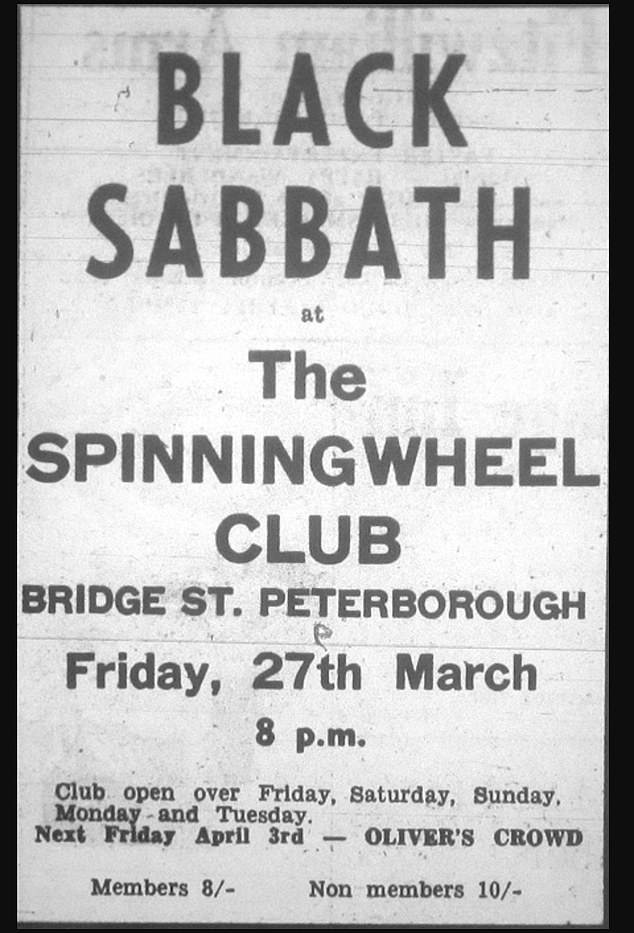Norman Tebbit, the best Prime Minister we never had, was laid to rest today. Requiem for the Conservative Party, somebody called it.
He certainly embodied a lost England, where hard work and self-sufficiency were valued and reliance on the State was a source of shame, not a lifestyle choice.
Tebbit is perhaps best remembered – notorious, even, in some circles – for his keynote speech to the Tory conference in 1981 at a time of rising unemployment and urban riots.
‘I grew up in the Thirties with an unemployed father. He didn’t riot. He got on his bike and looked for work, and he kept looking till he found it.’
When Norman’s dad lost his job as a jeweller he found gainful employment as a house painter. It wasn’t ideal, but it put food on the table.
I thought back to that speech when I read this week that there are now 639,000 graduates in Britain claiming benefits. Some are going straight from university to the dole.
This at a time when there are 720,000 job vacancies and we are importing record numbers of migrants to fill them.
I accept that times are tough for graduates who are unable to find work which matches their degrees. That’s not just because the economy is in a mess and starter jobs in sectors such as hospitality are increasingly scarce, primarily because of Labour’s vindictive National Insurance increases.

Norman Tebbit, pictured with Margaret Thatcher in 1987, embodied a lost England, where hard work and self-sufficiency were valued and reliance on the State was a source of shame, not a lifestyle choice, writes Richard Littlejohn

There are now 639,000 graduates in Britain claiming benefits and there are 720,000 job vacancies
It’s also because so many of those degrees, such as media studies, are worthless. This is a direct result of the Blair government’s determination to send 50 per cent of school leavers to university rather than encourage them to take real world jobs or enroll in apprenticeships.
For a while, they could find work in taxpayer-funded non-jobs such as human resources professionals, diversity officers, anti-nuclear campaigners and lesbian bereavement counsellors. The Guardian’s jobs supplement was full of them.
But now the money has run out, these inventive sources of employment are in short supply. As the number of graduate vacancies has fallen by a third, the number of university leavers has risen from 820,000 in 2019 to more than a million today.

According to the Office of National Statistics (ONS), as of March this year there 987,000 people aged 18-24 classed as Not in Education, Employment or Training (NEETS).
The problem is exacerbated by the rise of AI, which is rapidly replacing humans in everything from accountancy to the law and engineering.
As for media studies, half the clickbait stories online these days seem to have been written by robots.
So, yes, I sympathise with those who find that their degrees, for which they have been saddled with substantial student loans, are not a passport to the kind of careers they imagined.
But there is work out there, as those 720,00 vacancies attest. They will just have to adjust their sights downwards, hopefully only temporarily.
What I don’t accept is that anyone unable to pursue the type of work they thought would fall into their lap the day they left university should have so little self-respect that they are content to live on benefits rather than take jobs – in the care sector, for instance – which they clearly feel is beneath them.
Unemployment is soul destroying. No wonder we’ve got a Mental Elf epidemic. As I wrote back in March, I’ve been working since I was 11, when I started a paper round. My generation learned that if you wanted anything out of life you had to earn it.
OK, so I’ve been lucky, getting paid for doing stuff I enjoy. But there have been rough patches, too, including being made redundant shortly after my daughter was born. I remember walking in to what was then called the Labour Exchange. It reeked of stale smoke and despair. I walked straight out and vowed: never again.
With a mortgage to pay, I took a job painting pallets in a factory. That lasted about a week when there was more green paint on me and the factory floor than on the pallets. At least I was doing something though. It kept me sane, even though it simultaneously drove me mad, if you get my drift.
That column in March came off the back of a report that women over 65 made up nearly a quarter of new hires in Britain over the past year.
The ONS reported that 686,000 women past or approaching retirement age had taken on a new job, an annual increase of 135,000, either out of financial necessity or simply because they enjoyed working.
That’s almost identical to the number of graduates claiming benefits. So there is work available and my advice to young people leaving university would be to accept any job going, at least for now until the economy picks up.
Take a leaf out of Norman Tebbit’s father’s book. Get on your bike and look for work. After all, it’s not as if we’re short of cycle lanes these days.

By all accounts, despite his superstar status Ozzy Osbourne never took himself too seriously. Here’s my Ozzy story.
Back in 1970, I was a resident DJ at the Spinning Wheel club, in Peterborough. Our stock in trade was soul and reggae.
Among the acts we booked was Jamaican ska singer Desmond Dekker who came to town just as his smash hit Israelites went to Number One. More than 1000 people tried to get in to a venue which only held 200.
Flushed with success, the owners decided to branch out and appeal to prog-rock audiences too. Black Sabbath, a little known band we’d booked months earlier, turned up just as their first LP hit Number 8 in the album charts.
The dance floor, normally home to mods and skinheads, was packed with hippies sitting cross-legged. I decided to wind them up. If there was one thing hippies hated it was reggae.
I told them that we’d just heard that Black Sabbath’s van had broken down and they weren’t going to make it. But we had arranged a fabulous last-minute substitute, so would they please welcome back Desmond Dekker and the Aces.
Sabbath emerged from their dressing room to a cacophony of boos and catcalls. Some missiles were thrown.
As he took the stage, Ozzy grabbed me by the arm and said in a rich Brummie accent, and with a half-smile on his face: ‘Oi s’pose yow think that was (expletive deleted) foony?’












